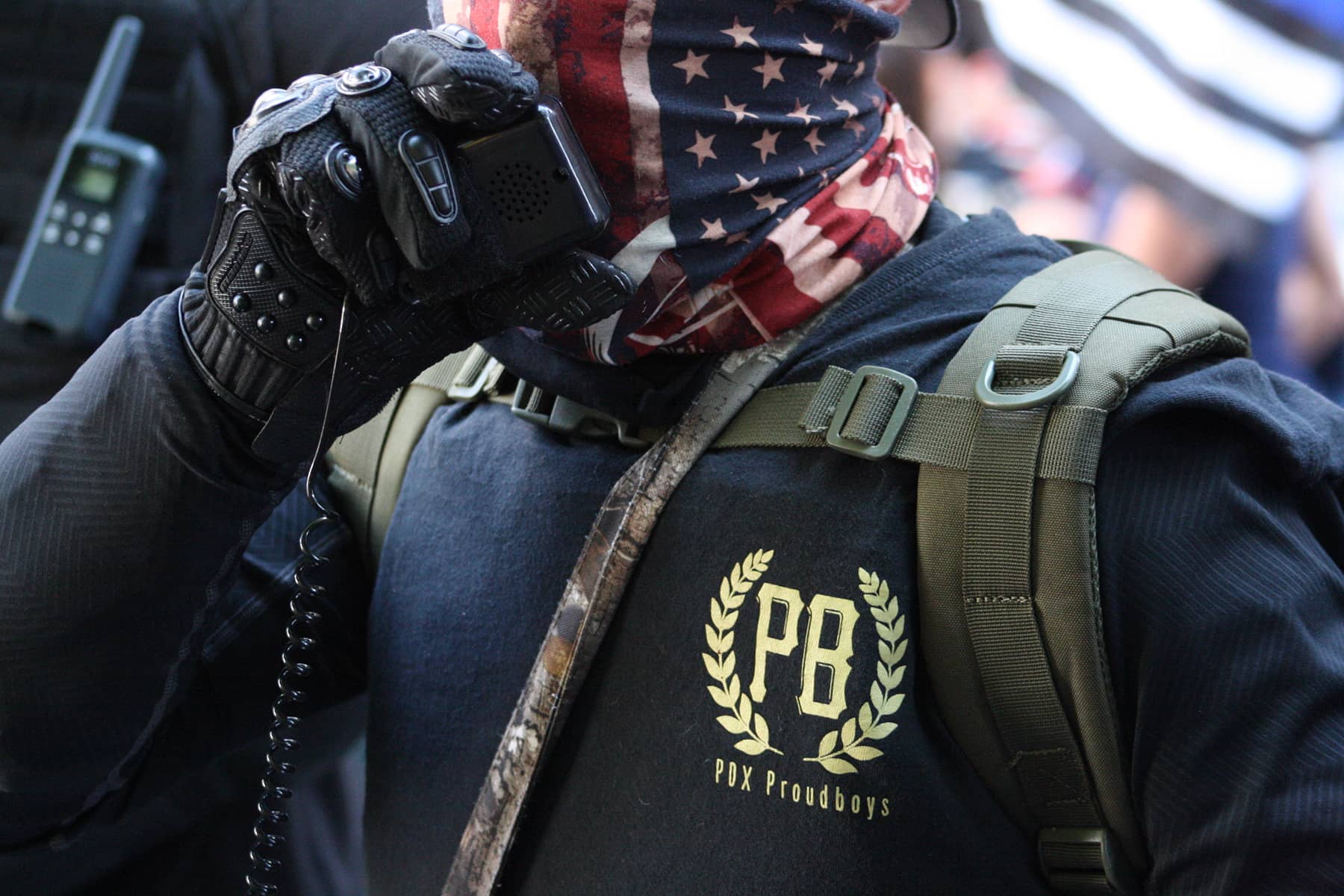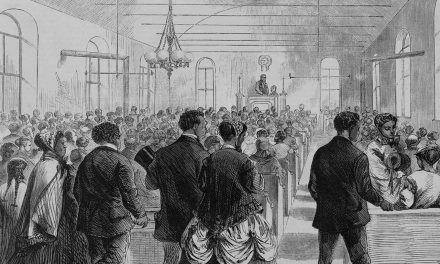
It garnered little notice, but New Zealand, half a world away from the events of January 6th, has designated the Proud Boys as a terrorist organization, making it “illegal to fund, recruit or participate in the groups, and obligating authorities to take action against them.”
But the government that the Proud Boys helped nearly overthrow does not so designate them. The United States formally labels only foreign-based violent extremist groups like ISIS as terrorist entities. Why is this?
A Brookings piece suggests that social norms about maximal free speech and a tendency to downplay incidents perpetrated by white males play a role. The Congressional Research Service ascribes it to our criminal statutes, saying that “while the participants’ actions on Jan. 6 may be consistent with the definition of domestic terrorism … domestic terrorism is not a chargeable offense on its own.”
But these analyses dance around a distasteful truth: Republicans have made it politically impossible either to update statutes or shape social expectations to deal effectively with domestic terrorist threats.
GOP stonewalling of measures to identify and preempt domestic terrorism goes back to a 2009 Homeland Security Department initiative to analyze the potential for political radicalization of veterans after a number of killings of police by ex-military members.
Veterans made politically extreme by overseas duties have figured in politically-motivated violence since Timothy McVeigh’s bombing of the Murrah Federal Building in 1995, and were overrepresented among the Capitol rioters. The Republican outrage machine, distorting it as an attack on veterans, killed the study.
Killings motivated by right-wing beliefs have outstripped those of Islamist fundamentalists in the U.S. since 9/11, yet the legal tools and the funding to counter the former are a tiny fraction of the authorities and resources poured into the Global War on Terrorism.
During the Trump administration and culminating in the January 6th attacks, right-wing extremism skyrocketed, including not only violent incidents but a surge in death threats against elected officials, election workers, and public school teachers, all of it intended to render impossible the normal functioning of society. Since the Mar-a-Lago search for classified documents, even the FBI is being targeted.
What is the Republican response? GOP congressional leadership refused to participate in the investigation of the violent attack on their own institution, an attack endangering their very lives. In July, all House Republicans voted against an amendment to the defense bill that required a report on countering threats created by white supremacy and neo-Nazism in the military.
Republicans have refused to condemn the spate of threats against the FBI, instead stoking potential violence by criticizing the bureau and insinuating to their voters that federal law enforcement “is coming for you.” Congresswoman Marjorie Taylor Greene even tweeted “defund the FBI!” while Lindsey Graham coyly walked the line between predicting right-wing riots and inciting them.
The Base, another white supremacist group designated as a terrorist entity by New Zealand, is led by Rinaldo Nazzaro, an American who has run the group from Russia. Other American extremist ringleaders as well are involved with Russia, which has been coordinating a propaganda and disinformation campaign on behalf of these groups.
This shows not only that the distinction between domestic and foreign terrorism is increasingly irrelevant, but that the flood of disinformation on social media, much of it Russian, is linked with violent extremism.
Monitoring this disinformation will be necessary in order to help stem recruitment into these groups. Accordingly, the Homeland Security Department announced an effort to combat disinformation. It fell victim to, you guessed it, disinformation and false rumors generated by Republican politicians and conservative media.
Obviously, a free society must ensure stringent oversight of any government entity tasked to identify disinformation to guarantee that the agency is not swayed by partisan politics or suppressing legitimate discourse. But that is not the same as denying that disinformation campaigns exist – and certainly Republicans protest too much about their precious freedoms when, at the state and local level, their operatives are attempting to ban books at libraries.
The United States faces the most serious domestic security threat since the Civil War. It needs the legal tools to block membership in and recruitment by domestic terrorist groups, neutralize their propaganda and disinformation, prohibit material support to them, and seize their assets.
Yet just as the “Copperheads” obstructed the suppression of insurrectionists during the Civil War, the Republican Party is obstinately blocking the means to combat a new breed of violent insurrectionist.
Mike Lofgren
Rоbеrt P. Аlvаrеz and Johnny Sіlvеrclоud
Originally published on Common Dreams as America Still Doesn’t Designate Violent Domestic Extremists as Terrorists















